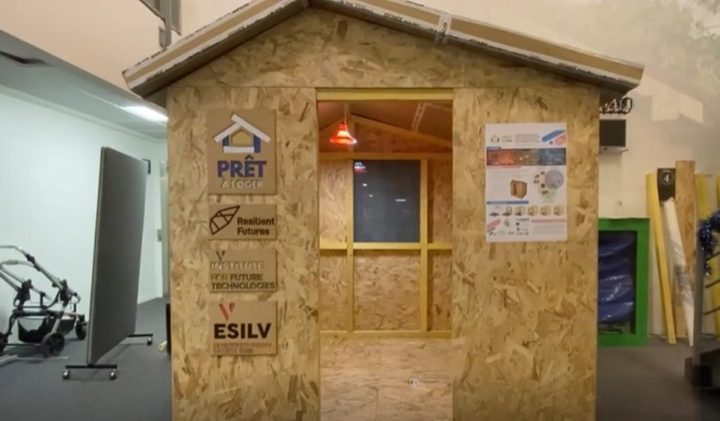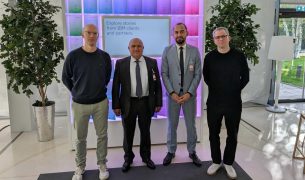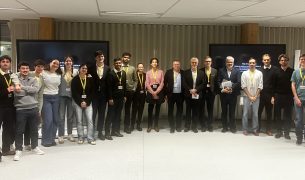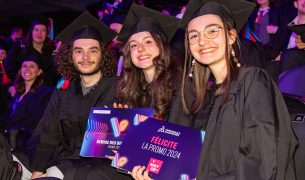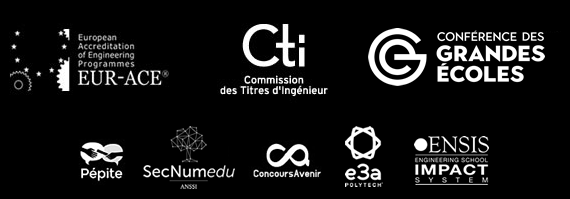The increasing frequency of climate-related disasters and global displacement highlights the limitations of current housing infrastructure. By 2050, the number of displaced individuals will reach 216 million, reinforcing the urgent need for adaptable and sustainable temporary housing solutions.
Prêt-à-Loger, a modular housing project developed at the Institute for Future Technologies (IFT) within ESILV, responds to these challenges. Constructed primarily from bio-sourced materials, the housing units are designed for rapid assembly and transportation, offering a viable alternative to traditional temporary shelters.
Innovation through Engineering and Creative Technology
Daniel Sanchez, class of 2025, had already completed his engineering studies in Colombia and decided to further his education by pursuing a Master’s in Engineering in Innovation and Creative Technology at ESILV and the Institute for Future Technologies (IFT).
This program stands out due to its innovative approach. It encourages students to push the boundaries of technology and scientific knowledge while addressing societal challenges through unique innovation projects.
The curriculum is designed around interdisciplinarity, collective intelligence, and radical learning, emphasizing self-directed learning, collaborative group projects, and hands-on experience.
Collaboration and Prototyping at IFT
Within the IFT, a multidisciplinary environment fosters collaboration across engineering, design, and manufacturing disciplines.
The research group Resilient Futures played a key role in shaping the development of Prêt-à-Loger, providing expertise in material innovation and rapid prototyping. The project also benefited from contributions by ESILV students Augustin Berthomier and Lina Laichoubi, alongside Marc Teyssier‘s mentorship.
The prototyping phase focused on optimizing structural efficiency, ease of deployment, and material resilience. Bio-sourced composites were selected to enhance durability while reducing the carbon footprint associated with traditional construction materials.
Scaling Impact Through Knowledge Transfer
Beyond the prototype, the project aims to establish localized production facilities in regions facing displacement crises. Prêt-à-Loger seeks to transfer essential knowledge and promote self-reliance in affected communities by collaborating with public organizations and non-profits.
This initiative aligns with broader trends in industrialized construction, emphasizing modularization and automation while maintaining accessibility through low-tech adaptations—the combination of prefabrication and biomimicry-inspired materials positions the project as a scalable solution for sustainable emergency housing.
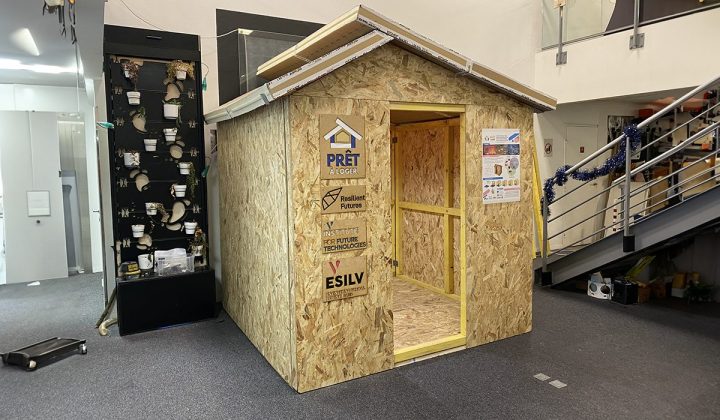
Prét à Loger at ESILV and IFT facilities
Towards a Resilient Built Environment
As the demand for temporary housing continues to rise, projects like Prêt-à-Loger contribute to the evolution of resilient construction methodologies. Integrating sustainable design, rapid deployment, and modular construction represents a shift towards adaptable and environmentally responsible housing solutions.
Daniel’s work at IFT reflects a commitment to accelerating the construction industry’s transition towards carbon neutrality and circular economy principles. Prêt-à-Loger offers a pathway to a more resilient future by combining engineering expertise with creative technology.
About ESILV’s Creative Technology Major
The Creative Technology Major at ESILV is a cross-disciplinary course that is a natural precursor to designing integrative and systemic software and product development solutions. Graduates from this program emerge as engineer designers capable of leading teams across research and development, marketing, and industrial production.
These professionals are involved in developing disruptive technologies and integrating them into new visions of society or emerging markets. Their expertise allows them to produce intellectual contributions, including patents and scientific publications. Students have built a substantial project portfolio by graduation, often complemented by articles, scientific papers, and patents.
The program benefits from the expertise of researchers and professors affiliated with the world’s most prestigious institutions, including the Massachusetts Institute of Technology (MIT), the Royal College of London, and the École Polytechnique Fédérale de Lausanne (EPFL). Industry partnerships with leading companies such as Google and Formlabs further enhance the program’s ability to bridge the gap between research and industrial applications.









